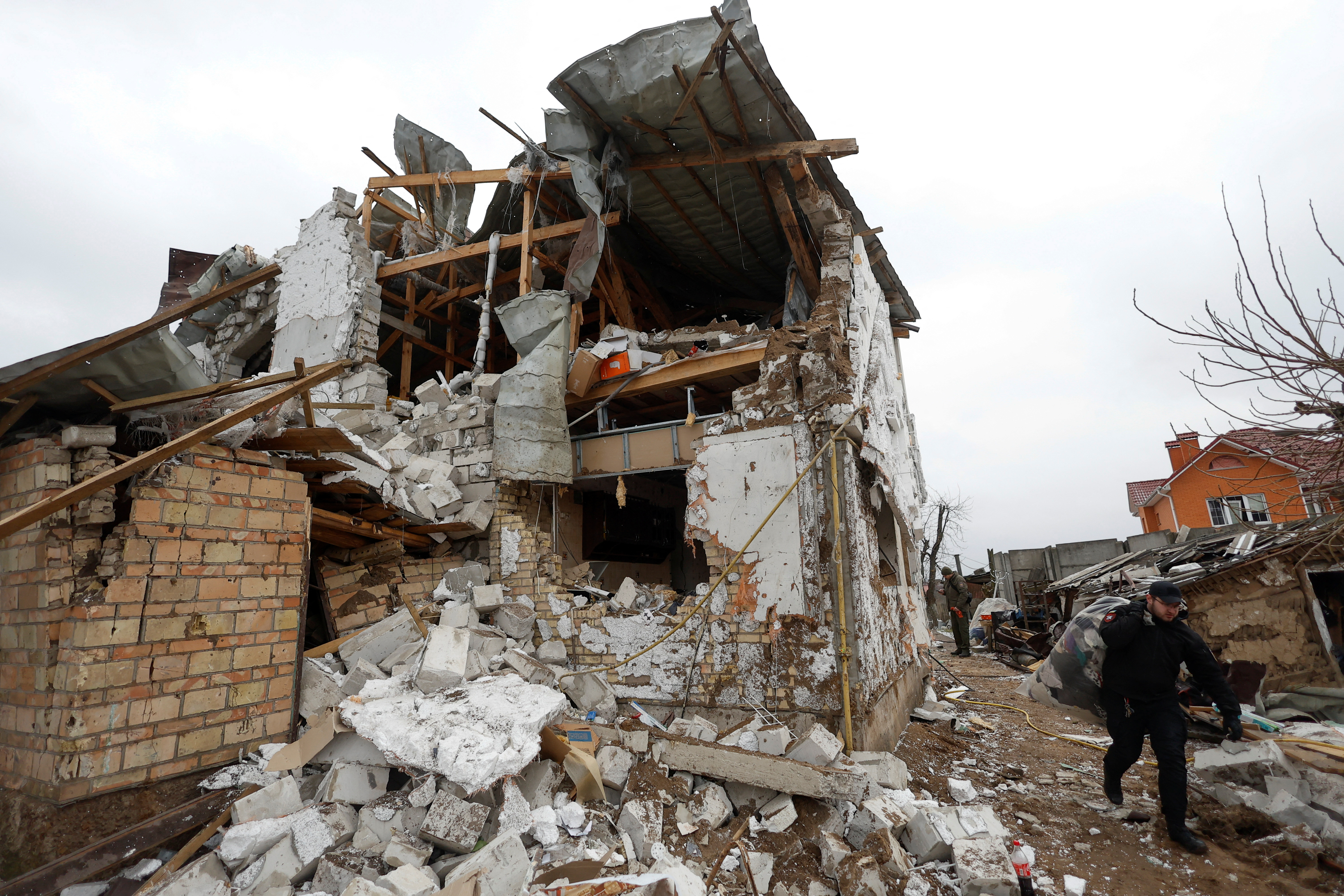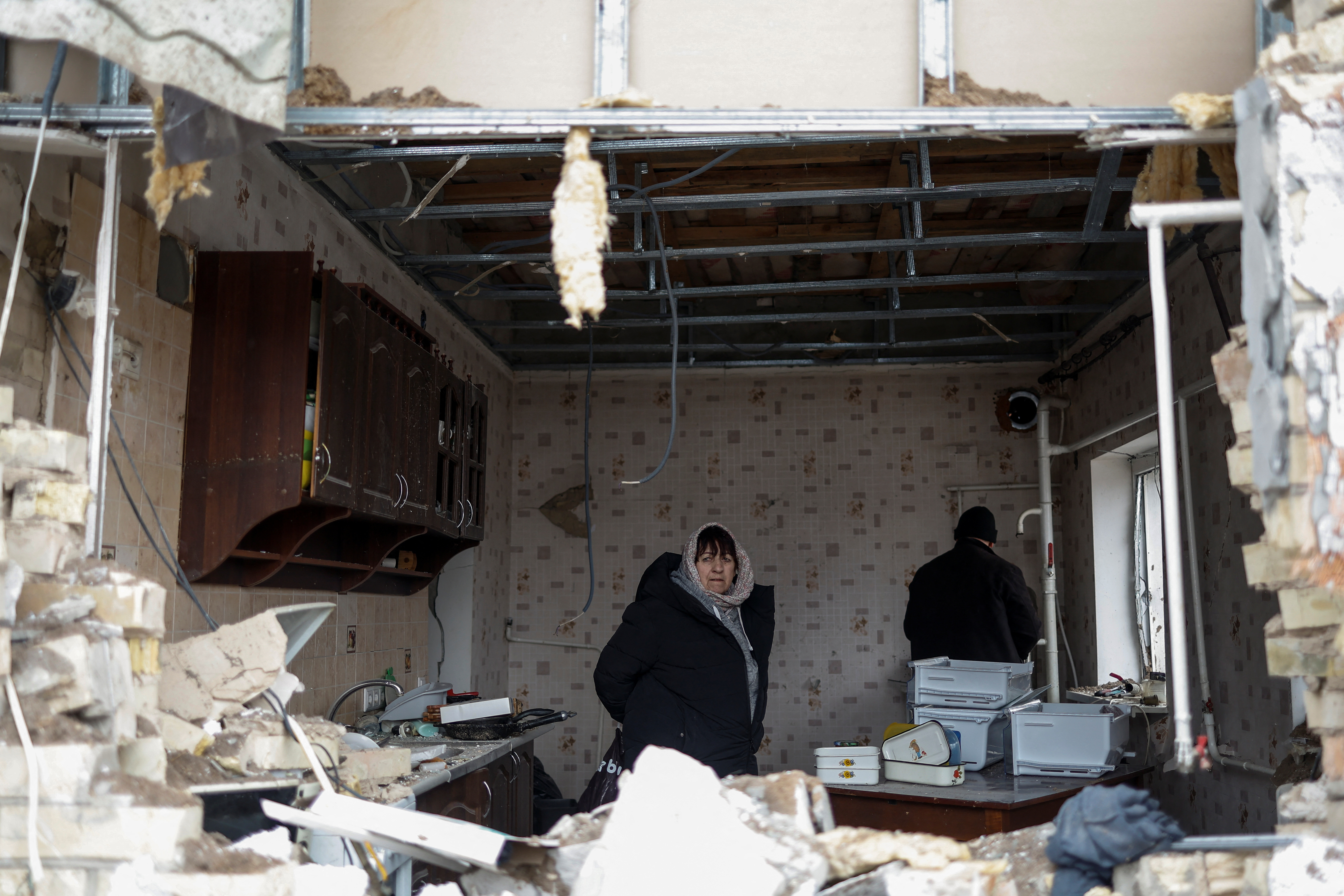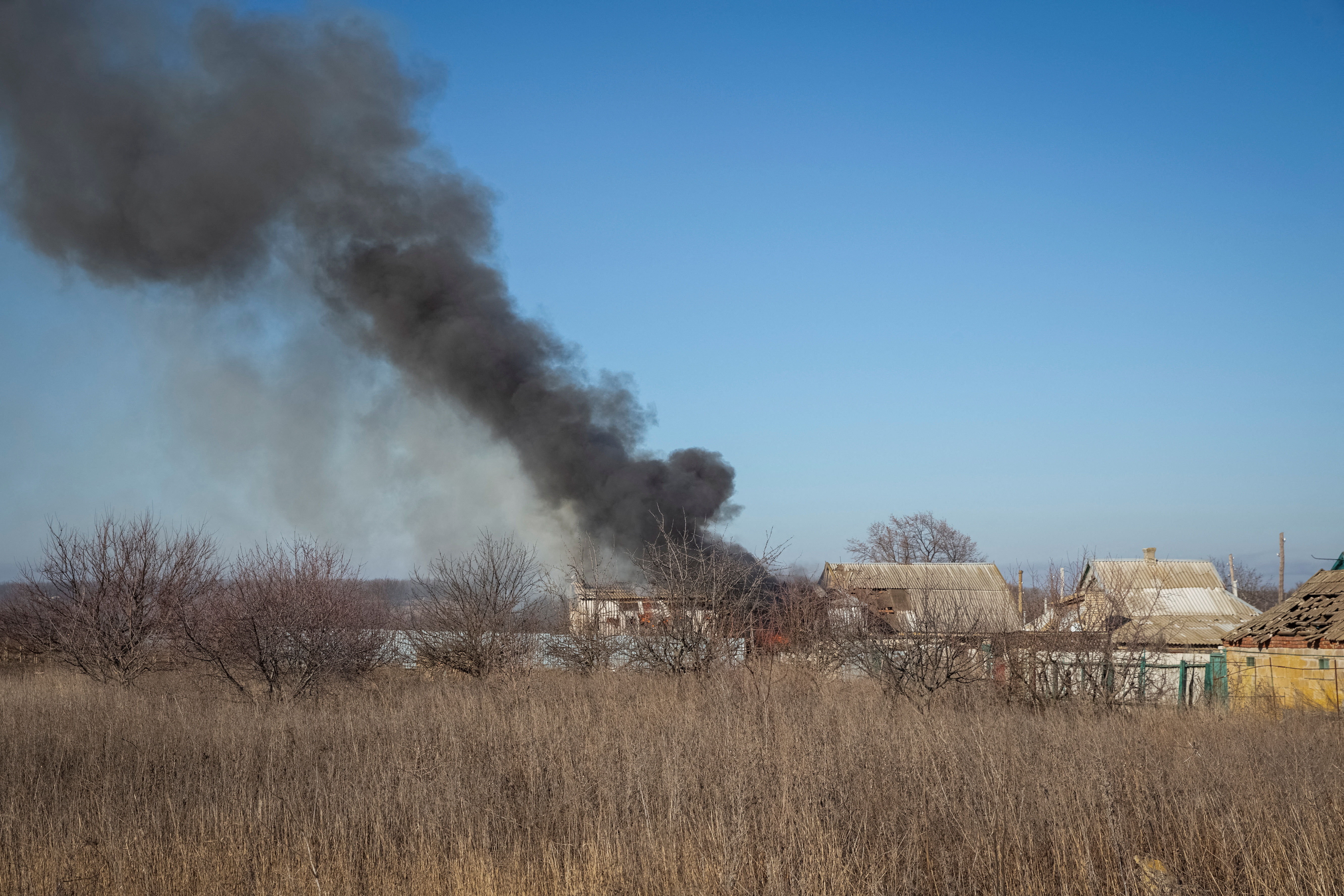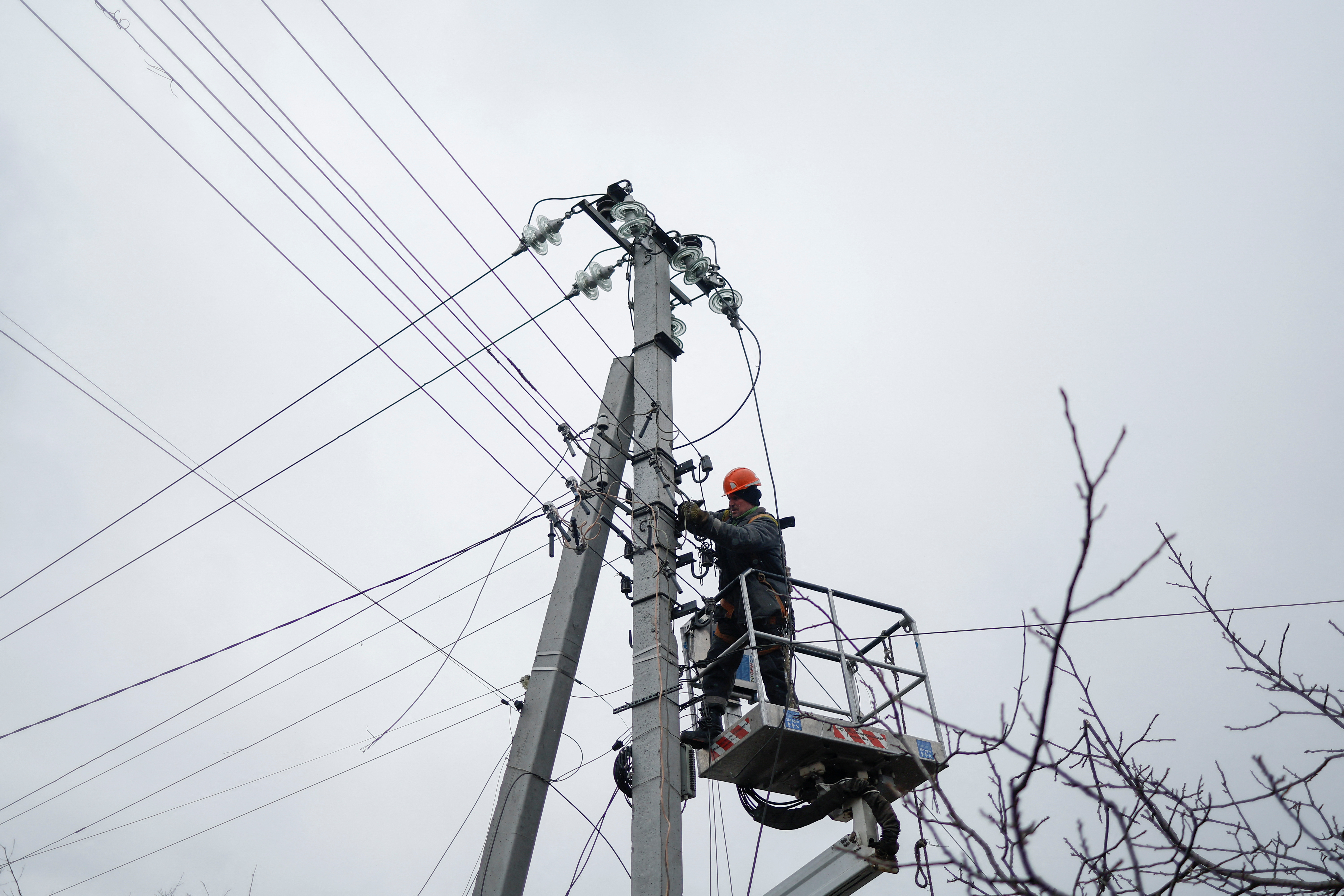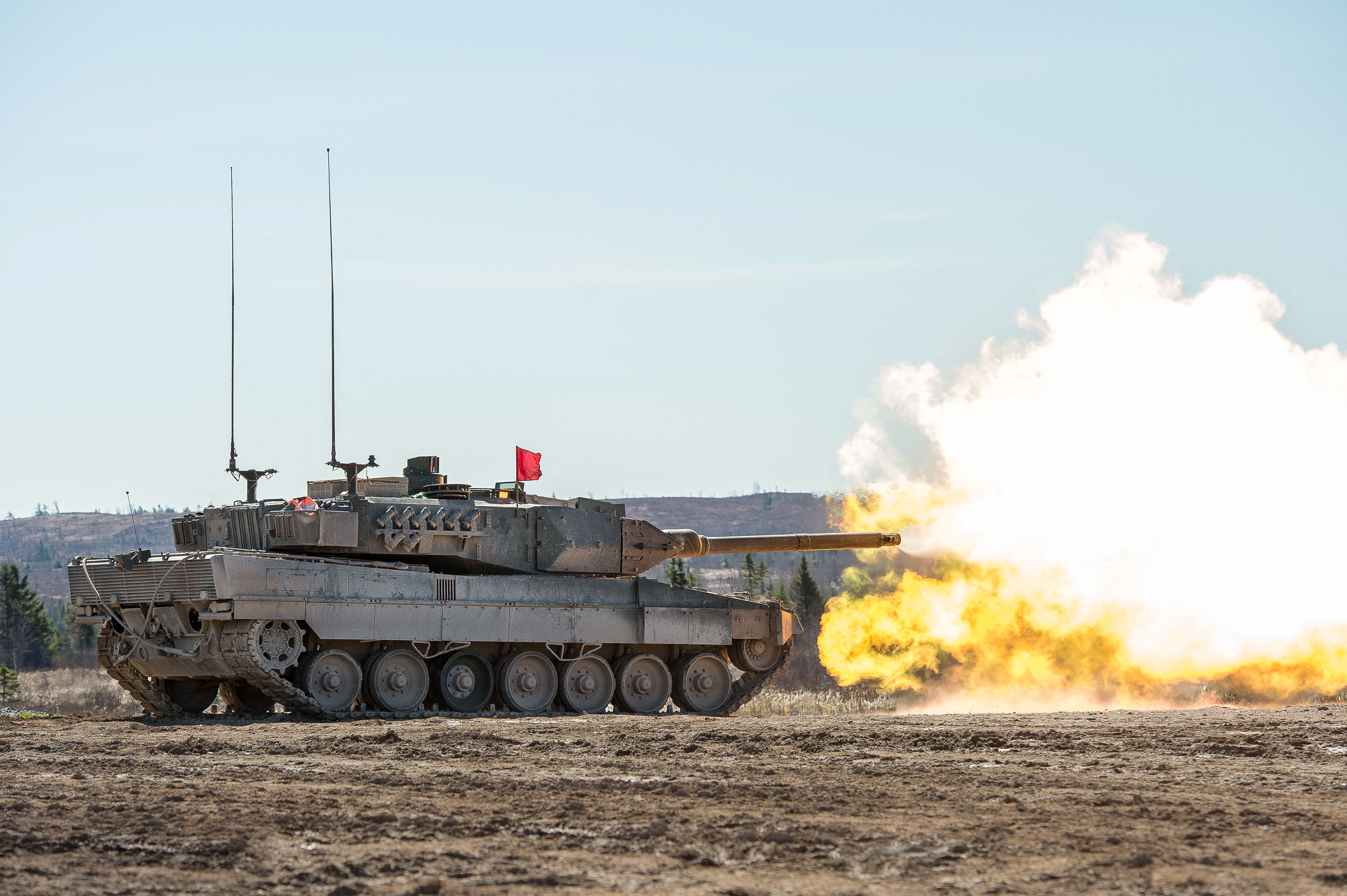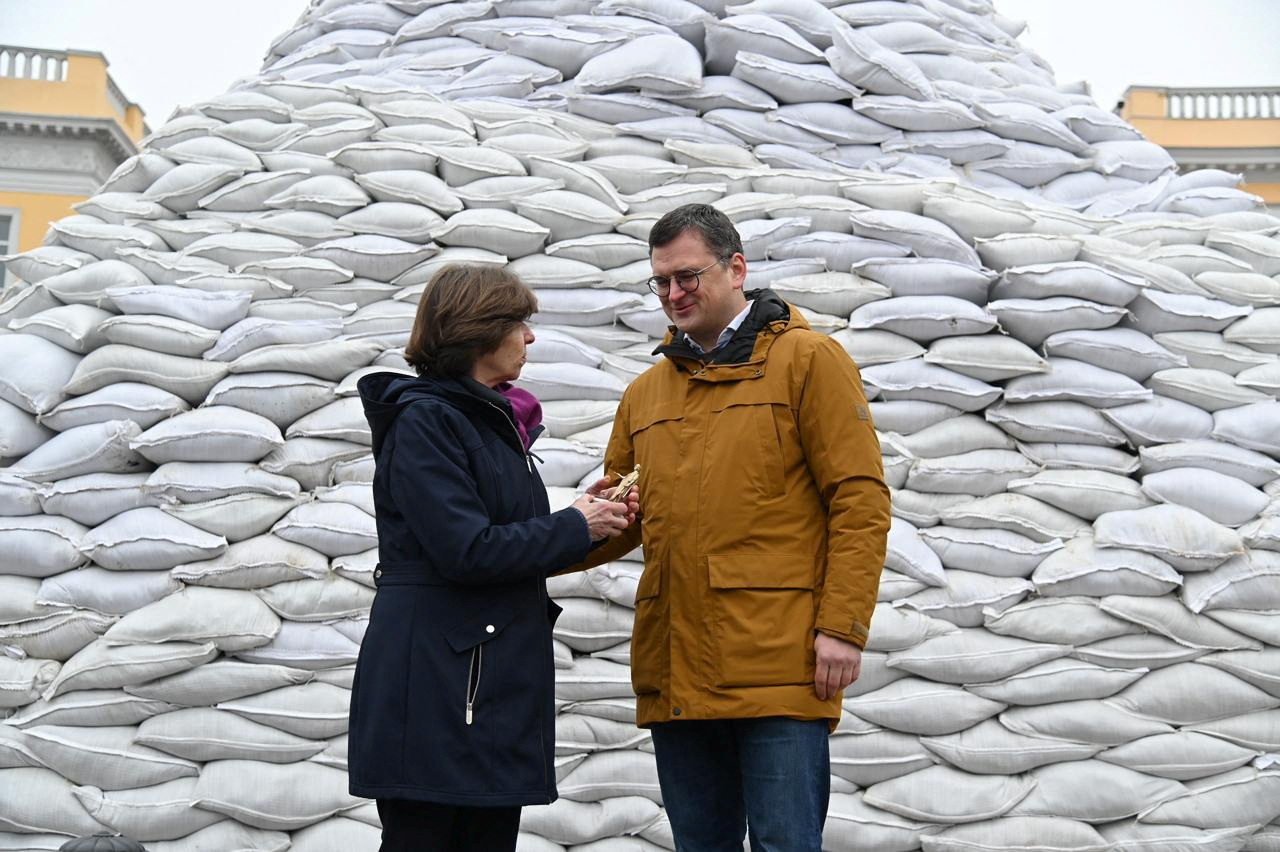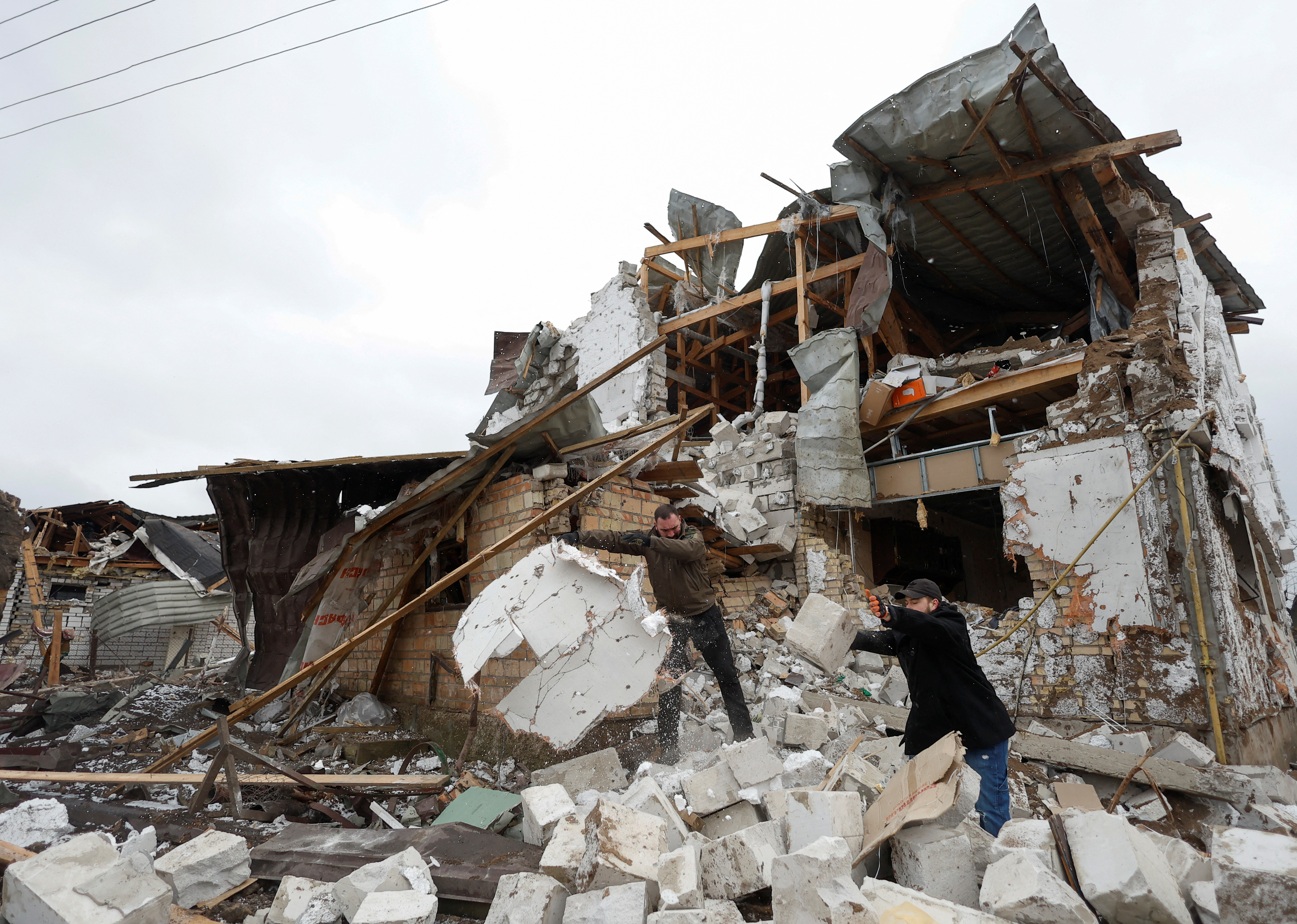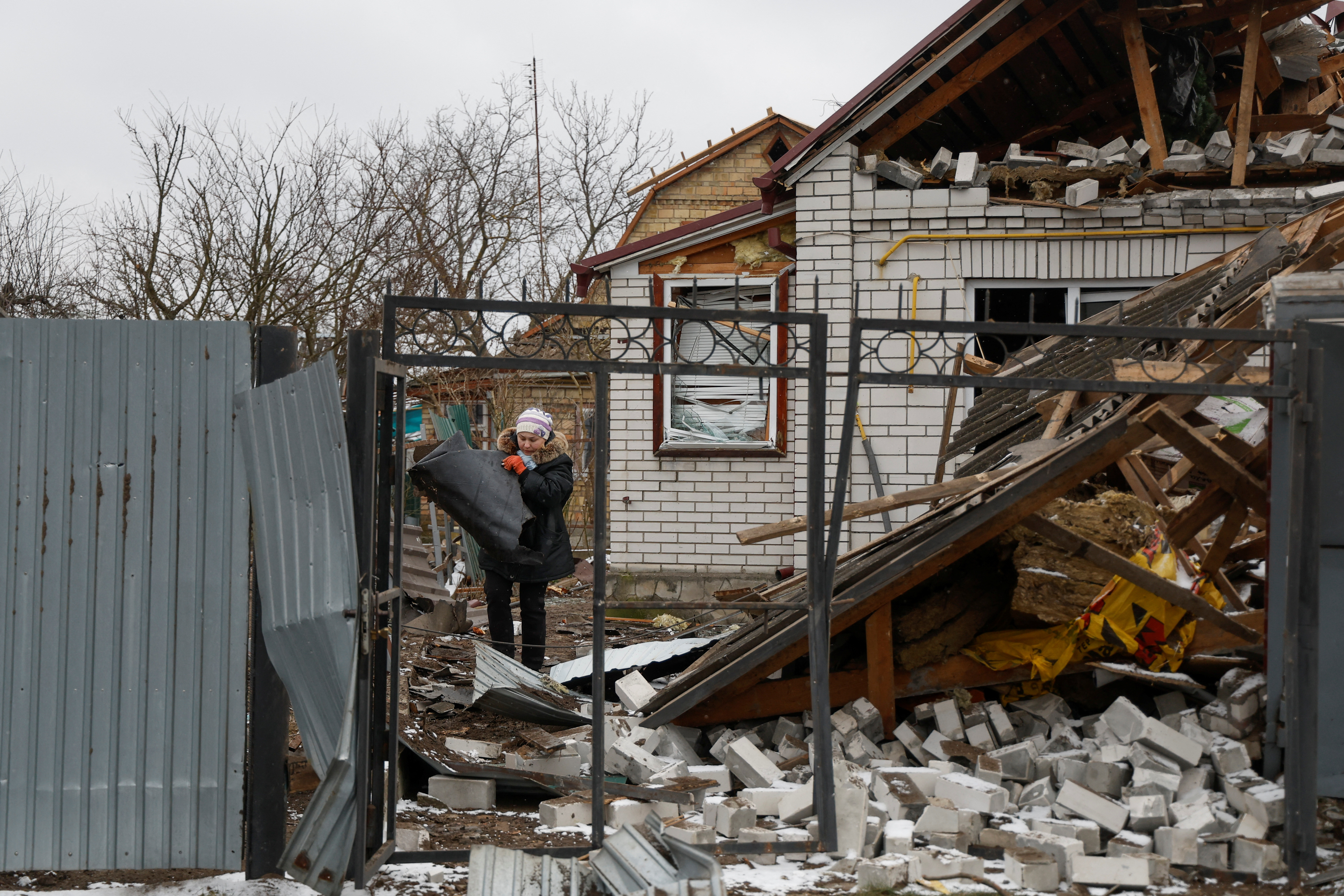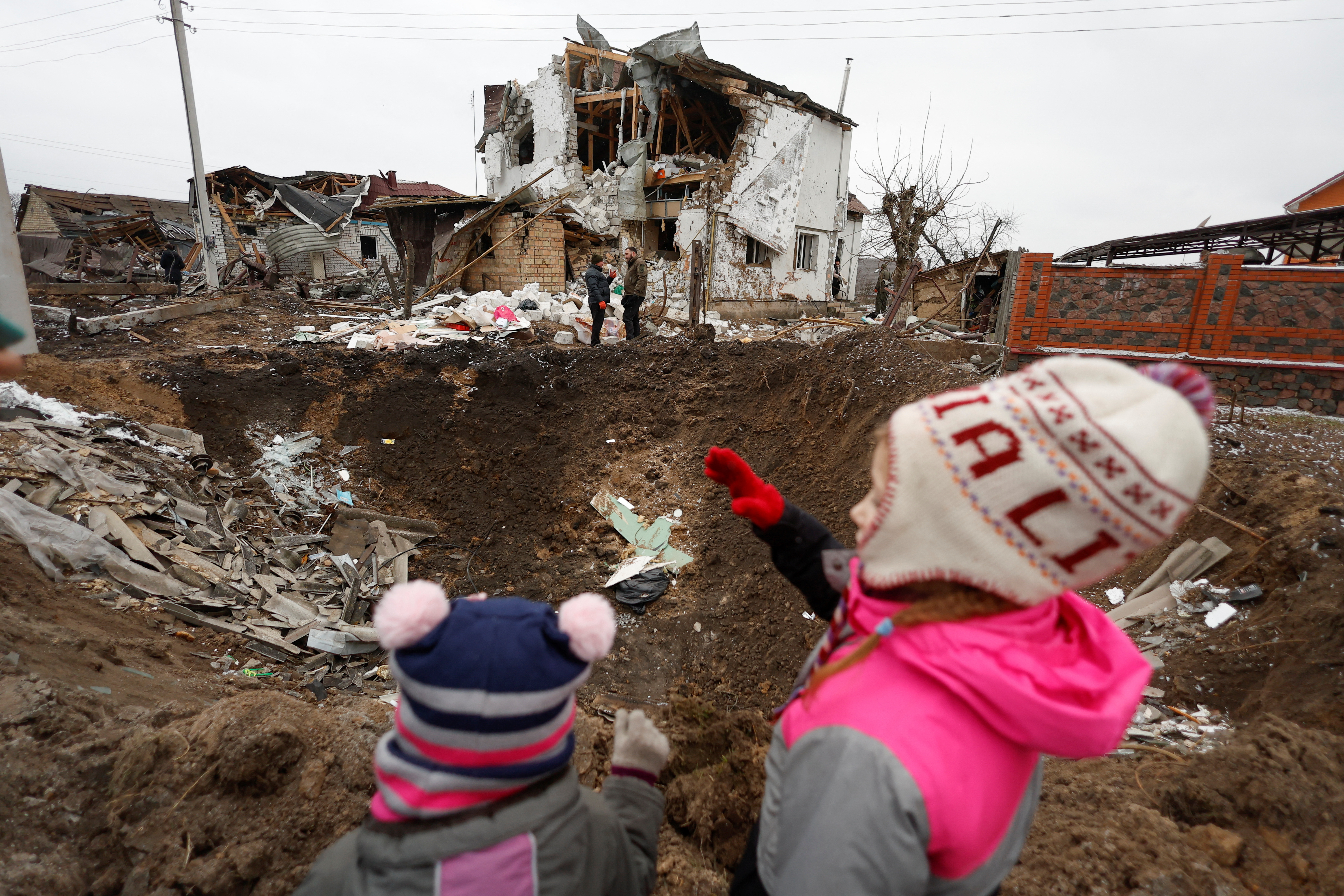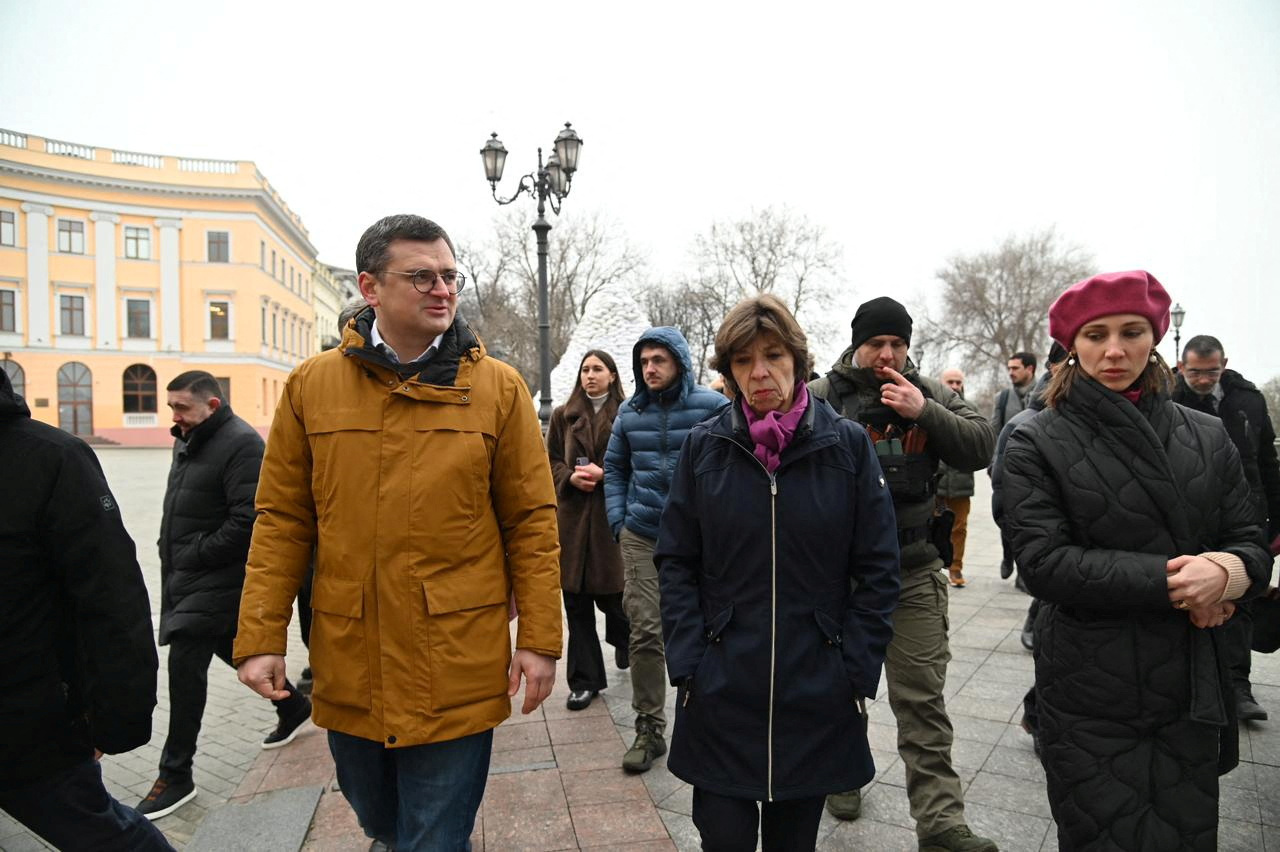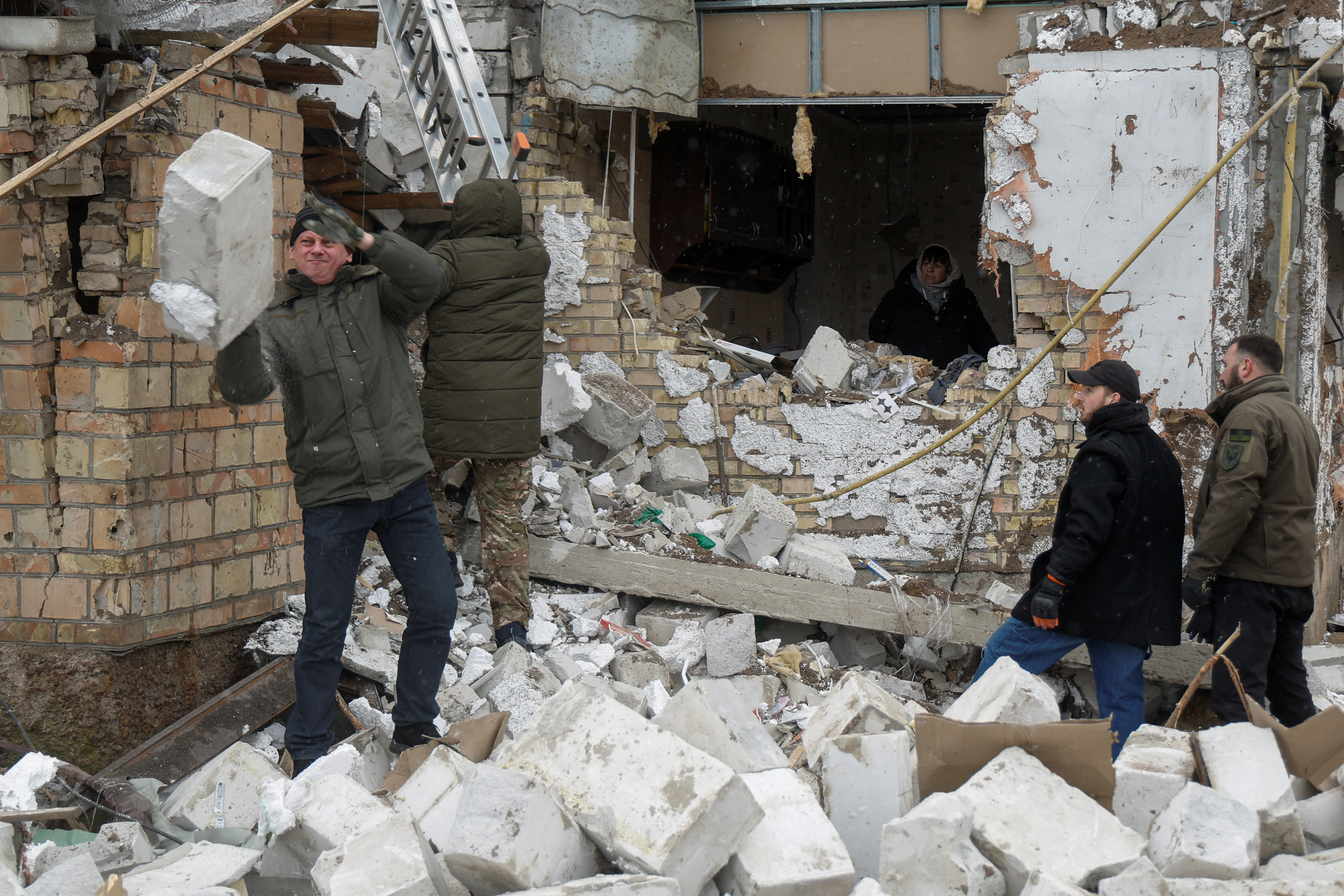Ukraine on Friday battled Russian troops trying to pierce its lines in the east and northeast before Kyiv takes delivery of tanks from its Western allies, saying the fighting showed it needed more weapons to repel the invaders.
Kyiv said fierce battles were under way, a day after at least 11 people were killed in missile and drone strikes which were widely seen in Ukraine as a response to the promises by important allies to send it tanks.
After weeks of wrangling, Germany and the United States this week said they would send Ukraine dozens of modern tanks to help push back Russian forces, opening the way for others to follow suit.
Poland gave Ukraine a further boost on Friday by promising an additional 60 tanks on top of 14 German-made Leopard 2 tanks it had already pledged.
Both sides in the war are widely expected to launch spring offensives though Washington has advised Ukraine against doing so until the latest weapons are in place and training has been provided – a process expected to take several months.
Russia said the United States was “pumping weapons into Ukraine”, which Moscow says does Washington’s bidding, and chided President Joe Biden, saying he held the key to ending the conflict but had not used it.
Ukrainian President Volodymyr Zelenskiy thanked allies for their support but renewed calls for tougher sanctions on Moscow and more weapons in the twelfth month of the war.
“This evil, this Russian aggression can and should be stopped only with adequate weapons. The terrorist state will not understand anything else,” Zelenskiy said in his nightly television address on Thursday.
Hours after he spoke, Ukrainian officials reported fierce battles in the northeast and east of the country, scene of some of the heaviest combat since Russia’s invasion on Feb. 24 last year.
“Fierce fighting continues along the front lines,” said Oleh Synehubov, governor of the northeastern region of Kharkiv, adding that Ukrainian forces were holding out.
Millions of Ukrainians faced electricity shortages after Thursday’s missile and drone strikes, the latest to target energy facilities and deprive people of heat, light and water.
Ukraine has repeatedly accused Russia of targeting civilian infrastructure, a charge that Moscow denies.
Russia said the strikes focused on “facilities that operate Ukraine’s defence industrial complex and transport system,” and limited Ukraine’s ability to repair military hardware and transport arms provided by its allies.
“The goals of the massive attack have been reached. All the assigned targets have been neutralised,” it said.
Reuters could not verify the battlefield reports.
Front lines have been largely frozen for two months, with Russia trying to gain ground in the east after occupying swathes of territory there and protect a corridor of land it has seized in southern Ukraine.
Oleskandr Musiyenko, head of the Military and Strategic Research Centre of Ukraine, said Russia was sending in more reinforcements, mainly conscripts, to block Ukrainian advances.
“But they do not have the level of artillery and tank support they had on Feb. 24,” Musiyenko told Ukrainian television.
Britain said in an intelligence update that Russian forces had probably conducted probing attacks near Orikhiv in southeastern Ukraine and in Vuhledar in the east, but were unlikely to have achieved “substantive advances.”
Kyiv also accuses Moscow of deporting children as well as adults from occupied areas and giving them Russian passports.
Filippo Grandi, the U.N.’s refugee agency chief, said this violated “the fundamental principles of child protection in situations of war” and that Russia must stop it.
Japan tightened sanctions on Friday, expanding an export ban list and freezing assets of Russian officials and entities.
But Ukraine’s hopes that the European Union will impose sanctions affecting nuclear energy were dealt a blow by Hungary, which said that it would veto such moves. Hungary has a Russian-built nuclear plant which it plans to expand.
Russia tightened its own moves against Western entities, with communications regulator Roskomnadzor saying it had blocked the websites of the CIA and FBI, accusing the two U.S. government agencies of spreading false information.
Russian Foreign Minister Sergei Lavrov visited Eritrea on the last stop of a tour of Africa that was intended to shore up support and began in South Africa, which plans joint military drills with Russia and China.
Ending her own tour of African nations, U.S. Treasury Secretary Janet Yellen said she had discussed economic sanctions on Russian during every stop and hoped an agreement could be reached soon on the next cap on the price of Russian oil.
Kyiv and its allies say Russia’s oil profits can be used to fund Moscow’s war effort.
Russia has shifted the focus of its rhetoric from “denazifying” and “demilitarising” Ukraine to confronting what is says is an aggressive and expansionist U.S.-led NATO alliance. Ukraine and the West say the invasion was an unprovoked act of aggression.
Related Galleries:
